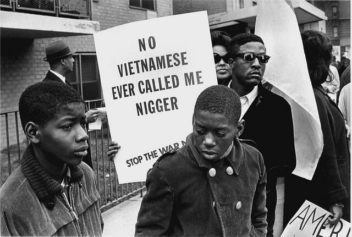
Sen. Mattie Hunter (D-Chicago) proposed the bill in an attempt to expand the responsibilities of the Illinois African American Family Commission (IAAFC) and have it structured like the Illinois Latino Family Commission.
“The intent of the bill is to include state agencies such as government business, social services and child welfare, to minority programs,” Hunter said.
Originally, the IAAFC was geared toward solving problems of African-American families on welfare, but as the commission grew it was obvious that there were other issues in the Black community that also needed to be focused on.
This new bill will help the commission reach those other areas.
“Including African-Americans in the development and planning process of policies is another step toward promoting equality within Illinois,” Hunter said. “With collected statistics, we can address problems often overlooked within the African-American community.”
The new law will require the commission to monitor existing legislation and programs that are designed to address the needs of the Black community.The commission’s responsibility will also be expanded to ensure they identify and research the issues that are affecting African-Americans.
Lastly, the commission will be required to create an annual report based on the progress being made.
Hunter said she received help from Rep. Kenneth Dunkin (D-Chicago) and the Latino Family Commission to get the bill passed.

It wasn’t an easy process getting the bill passed, however, and the senator had to make a major compromise to move forward.
While Hunter was pushing for $750,000 for new programs and initiatives, the House was only willing to commit to $500,000.
The commission will have to look for private sources, such as grants and donations, to close the financial gap.
Despite the compromise on funding, the senator still sees this as a major victory.
She said she is prepared to keep doing whatever it takes to keep uplifting minorities.
“It’s a constant battle everyday,” she said. “I don’t know when it will stop, but we will continue to work with community leaders, parents and young activists. Fifty years later since the Civil Rights Act was passed, there’s still a need of uplifting minorities in our country, cities, and states.”
The law will go into effect January 2015.


